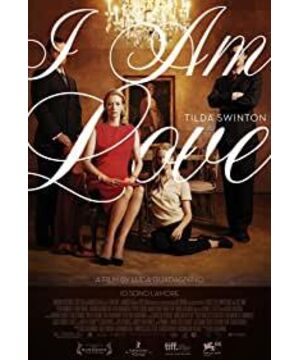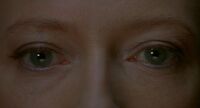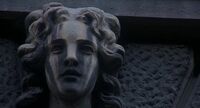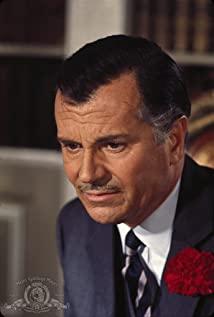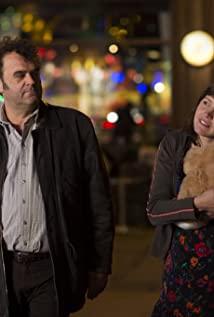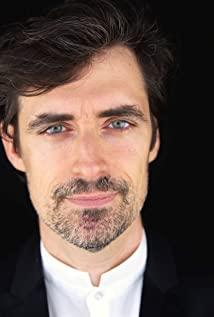What I stole was not love, but homesickness.
(Spoiler) Food reminds Proust of his childhood, but it makes Emma, an Italian lady, regain her youth and spring up, because the cook is a strong young Antonio - even if he is a friend of his son Edorado. Emma was intoxicated when no one else was chewing prawns in Antonio’s restaurant; sitting on the toilet after the first affair, she couldn’t help laughing from the bottom of her heart, like a shy girl who just gave her first time, rich in layers The other actors in the trick are far away.
The originality and authenticity of appetite and eroticism are triumphant in the most gorgeous cities, decorations and costumes. Huayi is to attract people to watch, but what the protagonist really wants is to be naked, take the sky as the blanket and the grass as the seat, to be the most primitive and original self. In a scene of making love in the mountains, the entangled flesh is spliced together with the close-up lens of various insects sucking nectar. The symbol of the unity of food and nature is a bit over-understood, but wonderful. Emma is the daughter of a Russian art restorer. Her husband is an art collector. He married her to Italy and became the mistress of the Recchi family in the textile kingdom. But she is always an outsider and can only miss her hometown through Russian cuisine. Until I met Antonio. The young girl did not inherit the family business, but inherited a love of art. When she went to London to study art, she recognized her sexual orientation. Emma found out by accident, but her daughter seemed to be a forerunner, demonstrating breaking the rules. One day Emma wanted to visit her daughter to give her a surprise, but when she saw Antonio halfway through, she couldn't follow it automatically. She stole a picture album in a hurry. Isn't it a sign of cheating?
Of course this is very immoral, this unfaithful woman. But Emma's betrayal seems to be her son more than her husband, probably because her lover is a friend of Edo. Anyway, my husband is always busy and often travels on business, and his relationship has long since been indifferent. On the contrary, the handsome and ideal son, the perfect child, has been betrayed. The key to the Dongchuang incident was that Russian fish soup, which was originally just a secret recipe cleverly prepared by the mother who loved her son, was obtained by a friend, and she has been kept in the dark.
What Edo wants to say is "even you betray me". He represents the disappearance of traditional values in the era of globalization and the death of a new generation of conscientious industrialists. It was the turning point of the century. When the grandfather celebrated his last birthday, he knew that his son would follow the trend of neoliberalism. He announced abruptly that he would pass the family business to his son and grandson at the same time, because he still needed Edo, who has a temperament like himself, maintains a balance in the family, but it can't be saved. Old Europe finally gave way to the Anglo-Saxon model. The fate of the family is not in the base of Milan. Instead, it was decided in London to sell for financing and transform to invest in real estate. Finance, catering to the general trend of the world, is also welcoming the financial tsunami a few years later.
If the women in this family are rebellious and indulge in love, then men betray their ancestors and switch to speculation, which is also a kind of lewdness. Greed is good; Sex is good; Food is good—— all the same. Then Edo, who represents traditional values, can only die, in that elegant pool, like a beautiful boy drowned in Greek mythology.
Some experienced film critics said "Private Affection. "Crazy" is continuing/following the masterpieces of Italian masters, recreating the charm and decadence of gorgeous clothes and feasts; then director Luca Guadagnino wants to show that unlike his predecessors, all the beautiful things that seem to last forever have finally come In the end, globalization is unstoppable, Europe is no longer the same, and so are people's hearts.
Emma not only took off her clothes, she also took off her shoes. She was barefoot in Antonio's cabin, in the church after her son died, and before she ran away from home. That was the first restraint to be lifted, in exchange for a down-to-earth feeling, and flew into the unknown world. In the church, she changed her mind to her husband confess, and he responded that "you do not exist", the Chinese and English translations are the same, probably meaning "you better disappear". But she has long since disappeared, and she can only rely on Russian cuisine to preserve her soul. However, homesickness did not trap her in memories, but instead opened up the opportunity for the future-I am L ove, relying on Antonio's love to restore her sense of existence. Since I can't go back, I start a new life. That is women's neoliberalism. Anyway, the traditional "home" has been sold, and she is only following the trend of collapse and separation.
Pity Eva, who just married into a wealthy family and is pregnant with Edo's posthumous child, is like the last fool before the bubble burst; in Recchi's house, no one cares, like a transparent person, the director is too cruel to her.
[14 October 2010]
View more about I Am Love reviews


